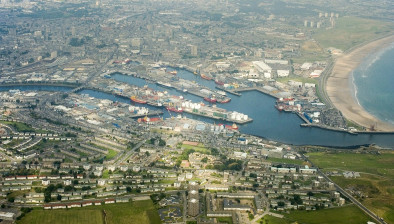Malcolm McNeil: What have Napoleon, Abba and Bidets got to do with governance?

Malcolm McNeil
Beginning a series of opinion pieces to mark Grampian Housing Association’s 50th anniversary celebrations, depute CEO Malcolm McNeil outlines the key components of good governance.
When I first entered the sector in 1987, my knowledge and understanding of governance and what it can contribute to an organisation’s delivery was pretty limited. Fast forward 38 years and I think its fair to say I get it, although as the saying goes every day is a school day so you never stop learning.
This year sees Grampian celebrate its fiftieth anniversary and looking back it has achieved a great deal and in doing so delivery of its core purpose of making a positive difference to the lives of others. During that time, good governance has been the constant throughout, helping us during times of challenge as well as supporting us to success. Given the current context and difficult circumstances faced by tenants and their landlords, good governance has never been more important.
“OK, Malcolm I get all that,” I hear you say. “However, what is it that makes for good governance?”
The then ITV Chairman, Michael Grade, once likened Boards to bidets, stating; “You’re not sure what they’re for but they add a touch of class.”
Well whilst that is a view I nor anyone here in Grampian subscribes to, governance should never be an end in itself but rather a vehicle in which to travel and get to the destination we have set. Good governance although requiring the right policies and frameworks is not simply about that. It is also about the right behaviours through which an organisation and those who govern it demonstrate accountability, transparency and above all responsibility.
Listening to tenants also promotes good governance. It is not just the right thing to do, it is also good for business. While it doesn’t necessarily mean representation at governing body level or on scrutiny panels, we were pleased to see the launch of our new Board apprenticeship scheme earlier this year. For us, providing a range of ways tenants can be involved and engaged helps to ensure their needs and priorities are reflected in our decision-making processes whether that’s feedback received through complaints, surveys about policy changes or as Board members, it all counts.
This all requires making good well-informed decisions as well as on occasion accepting where that wasn’t the case but doing the right thing to fix it. Grampian has had occasions where things haven’t gone so well. However when that was the case it has done the right thing even if that was difficult. How the Board behaved made the difference, having that mindset to do what was right and yes take the right course of action whatever that meant.
Of course, having good policies and governance framework also matters but these are but a toolbox and you need to know the right tool for the job before you do it. To that end Board and staff need to have the right knowledge and skills so they can select the correct tool, so learning and development matters. In my career I have been fortunate to receive and be guided by others whose experience and insight on governance is worth taking note of. That then allows me to be a better version of myself and in turn better support the organisation. Avoid the risk of believing you know it all and have done it all.
Although good governance should be the constant, don’t stand still and avoid change. That is not just about tracking the latest guidance or regulatory requirement but often about assessing your organisation’s approach and structure and asking the question; does it remain relevant to the present or near future, is it the best for what is needed etc?
Here in Grampian we have undertaken such formal assessments on a periodic but regular basis and through that evolve and get better in our governance.
A warning though and returning to my advice to avoid governance becoming an end in itself, governance also needs to aid growth and development on the organisational level. Risk needs to be managed but not so as to supress innovation and improvement.
Napoleon was once asked whether he preferred courageous generals or brilliant generals. Neither, he replied; he preferred lucky generals! Of course, he did meet his Waterloo, so balance is important.
Another tip is to see the organisation as others see it. Are you stuck in a rut, always doing things the same way, not diversifying services and responding to customer needs? So sometimes as Abba once sang, take a chance, take a chance, chance-chance!






